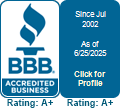Fraudulent Text Messages
Please be aware that we have received reports from other members about text messages pretending to be from First Education FCU. If you receive a text message supposedly from us, do not reply or call the number, delete the message and either call or text us at 307-432-7400. Do not use any other number to contact us.
Read More



